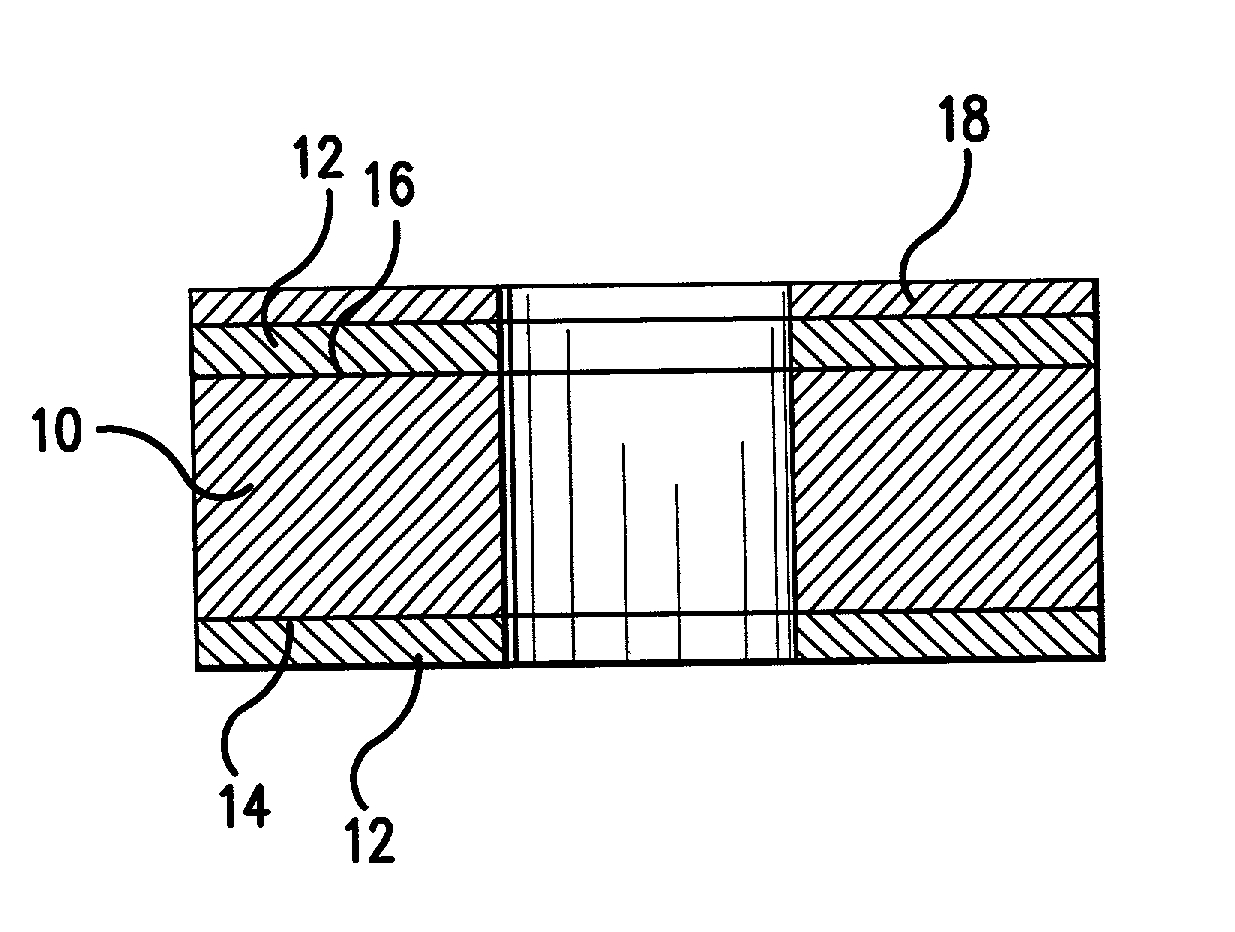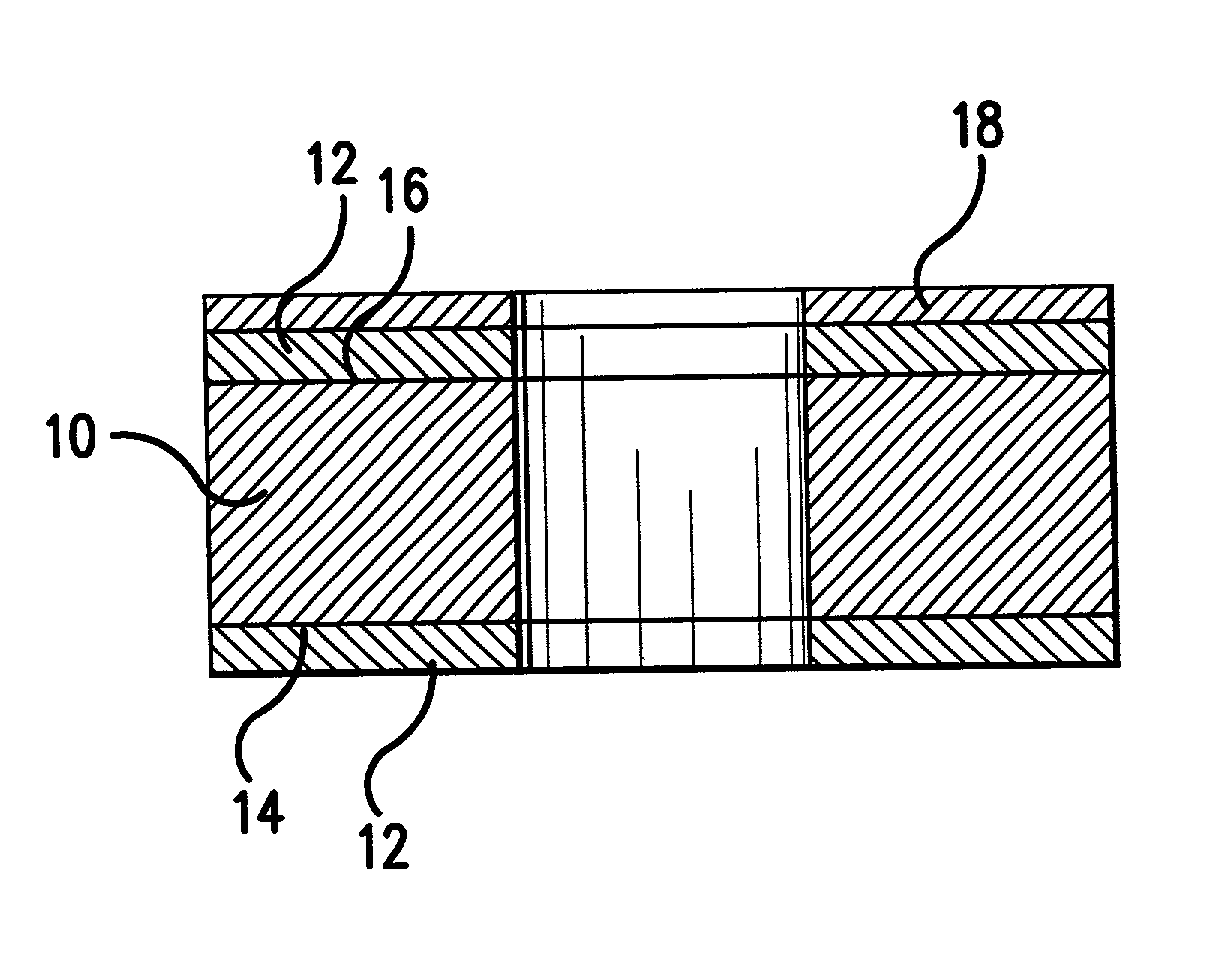Metal matrix composites of aluminum, magnesium and titanium using silicon hexaboride, calcium hexaboride, silicon tetraboride, and calcium tetraboride
- Summary
- Abstract
- Description
- Claims
- Application Information
AI Technical Summary
Benefits of technology
Problems solved by technology
Method used
Image
Examples
example 1
[0024] A metal matrix composite horseshoe was made from an aluminum matrix composite. The aluminum matrix composite contained from about 5 to about 10 wt % calcium hexaboride particles having an average particle size of about 75 microns and the remainder being A356 aluminum metal. The resulting horseshoe was light, strong, abrasion resistant and unexpectedly ductile. The horseshoe could be bent at an angle of 45 degrees without damage.
example 2
[0025] A metal matrix composite memory disk substrate was made from an aluminum matrix composite. The aluminum matrix composite contained from about 40 wt % calcium hexaboride particles having an average particle size of about 10 mircrons and the remainder being aluminum metal.
example 3
[0026] A metal matrix composite actuator arm for a hard drive was made from an aluminum matrix composite. The aluminum matrix composite contained about 30 wt % calcium hexaboride particles having an average particle size of about 50 microns and the remainder being A356 aluminum metal.
[0027] Magnesium and titanium have low specific gravities similar to that of aluminum. Accordingly, metal matrix composites of these metals with calcium hexaboride is within the scope of the present invention.
[0028] From the foregoing, it will be understood that improved metal matrix composites of aluminum, magnesium and titanium are achieved by the addition of calcium hexaboride particles. The composition can be easily prepared with a minimum of stirring, and the product can be recycled if desired.
[0029] In another embodiment of the presently disclosed invention, a metal matrix material is made by combining solid metal particles with solid ceramic particles. The metal and ceramic particles are both in ...
PUM
| Property | Measurement | Unit |
|---|---|---|
| Fraction | aaaaa | aaaaa |
| Fraction | aaaaa | aaaaa |
| Percent by mass | aaaaa | aaaaa |
Abstract
Description
Claims
Application Information
 Login to View More
Login to View More - R&D
- Intellectual Property
- Life Sciences
- Materials
- Tech Scout
- Unparalleled Data Quality
- Higher Quality Content
- 60% Fewer Hallucinations
Browse by: Latest US Patents, China's latest patents, Technical Efficacy Thesaurus, Application Domain, Technology Topic, Popular Technical Reports.
© 2025 PatSnap. All rights reserved.Legal|Privacy policy|Modern Slavery Act Transparency Statement|Sitemap|About US| Contact US: help@patsnap.com


